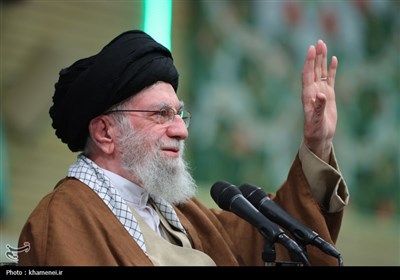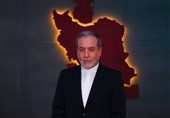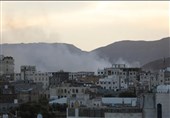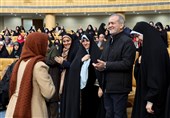Mustafa Foundation Holds Meeting on COVID-19 Vaccine
TEHRAN (Tasnim) – The Iranian-based Mustafa Science and Technology Foundation held the fourth edition of the Mustafa (PBUH) Prize Science Promotion Meeting in Tehran to discuss various approaches to development of the coronavirus vaccine.
The Monday meeting was attended by professional experts in the production of COVID-19 vaccine.
Mostafa Qane’e, head of the scientific committee of a national headquarters on the fight against COVID-19, said Iran has been working on four or five approaches to vaccine development with the help of domestic knowledge-based companies.
Kayhan Azadmanesh, a professor at the Pasteur Institute of Iran, said the institute is developing an adenovirus vaccine that delivers one or two virus genes to the cells.
The CEO of Kian Gene Azma company also took the podium to talk about an inactivated vaccine his company is developing.
“We are in the challenge phase. In this phase the animal must be infected with the virus. It is a very sensitive phase,” Ruhollah Dorostkar said.

Director of a project on developing an mRNA-based COVID-19 vaccine, Vahid Khoddami, said the new method to make such vaccine would not cause genetic problems, noting, “Enough doses can be manufactured rapidly… It is a very flexible technology which can be applied on other areas as well.”
Another participant in the meeting was Reza Banihashemi, director of the central laboratory and head of Immunology Department at Razi Vaccine and Serum Research Institute (RVSRI), who elaborated on a vaccine production method that uses the genome in a mammalian cell outside the body.
Last week, the Razi Vaccine and Serum Research Institute unveiled the second Iranian vaccine for the coronavirus, administered via injection or inhalation.
Cov-Pars is a vaccine based on recombinant protein that can be injected or inhaled.
In comments at the unveiling ceremony, Health Minister Saeed Namaki said Iran is going to become a main hub of vaccine production in the world in the coming months.
The first Iranian vaccine, financed by the Barakat Foundation, has already been injected to several volunteers, all of whom are in good health.
Officials say Iran will receive around 16 million doses of vaccines through the World Health Organization's COVAX program, import more than 25 million doses from abroad, and produce 25 million other doses inside the country.
Iran has purchased 2 million doses of Russia’s Sputnik-V vaccine, two shipments of which have arrived in Tehran so far.






